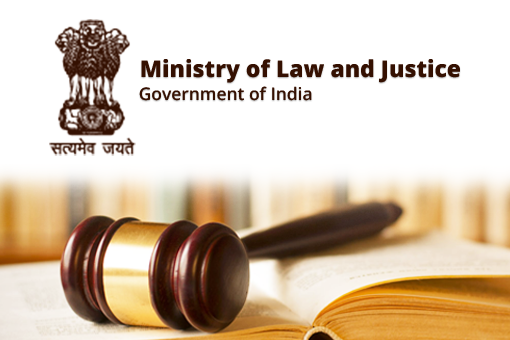The Ministry of Law & Justice (DoJ) on August 1, provided information in the Parliament in response to an unstarred question raised by Congress MP Rajeev Shukla in relation to the vacancies of judges across the country.
Shukla questioned the Ministry with regards to vacancies of judges and asked the Union Law Minister Arjun Ram Meghwal about the total number of judicial vacancies existing across the Indian judiciary in terms of judges and the reason behind not filling up of these vacancies. Congress MP Shukla also asked the Ministry to produce court-wise and State/UT-wise details and whether the government is taking measures to fill these vacancies in order to ensure speedy delivery of justice.
In response to this the Law Minister Arjun Ram Meghwal said that “Appointment of Judges in Supreme Court and High Courts is a continuous, integrated and collaborative process between the Executive and the Judiciary. It requires consultation and approval from various constitutional authorities both at State and Central level. While every effort is made to fill up the existing vacancies expeditiously, vacancies of Judges in High Courts do keep on arising on account of retirement, resignation or elevation of Judges and also due to increase in the strength of Judges.”
In relation to the vacancies of judges across the country, the Law Ministry stated that 5,238 posts are vacant in district & subordinate courts, 359 posts are in High Courts, Supreme Court is at full strength with 0 vacant posts.
The Law Minister further added that “the filling up of vacant positions in the District Courts of the country is the responsibility of the High Courts and State Governments concerned. As per the Constitutional framework, in exercise of powers conferred under proviso to Article 309 read with Articles 233 and 234 of the Constitution, the respective State Government in consultation with the High Court frames the rules and regulations regarding the issues of appointment and recruitment of Judicial Officers in the respective State Judicial Service. In some States, the respective High Court undertakes the recruitment process, whereas in other States, the High Court does it in consultation with the State Public Service Commission. The Hon’ble Supreme Court vide judicial order passed in January 2007 in the Malik Mazhar Sultan case, has stipulated certain timelines which are to be followed by the States and the respective High Courts for initiating the recruitment process of judges in subordinate courts.”
The answer of Law Minister can be found here:
However, the Law Minister also provided the total number of pending cases across courts in the country as per information available on the National judicial Data Grid (NJDG). As per this information provided in Parliament, 83, 798 cases are pending in Supreme Court, 60,02,383 in High Courts and, in District and subordinate Courts 4,53,97,157 cases are pending.
Ministry while responding the reason behind such pendency said that “there are several reasons that lead to pendency of cases in courts which, inter-alia, include availability of physical infrastructure and supporting court staff, complexity of facts involved, nature of evidence, co-operation of stake holders viz. bar, investigation agencies, witnesses and litigants and proper application of rules and procedures. Other factors that lead to delay in disposal of cases include lack of prescribed timeframe by respective courts for disposal of various kinds of cases, frequent adjournments and lack of adequate arrangement to monitor, track and bunch cases for hearing. Moreover, in case of pendency of criminal cases, the criminal justice system functions on assistance by various agencies viz. Police, Prosecution, Forensic Labs, Handwriting Experts and Medico-Legal Experts. Delay in providing assistance by allied agencies also entails delay in disposal of cases.”
Related:
India’s Justice Delivery System Exposed: Startling Statistics Revealed in 2022 Justice Report
How diverse and inclusive is the Indian judiciary?
“How does dictating attire empower women?” Supreme Court partially stays Mumbai College’s Hijab Ban
